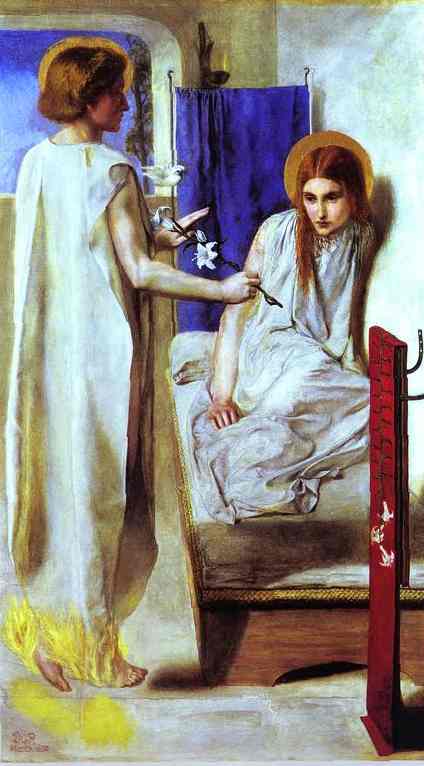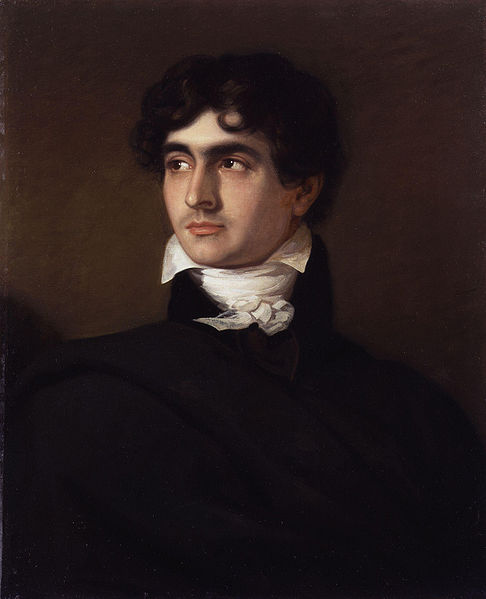 Yesterday, I hopped on the train to attend another talk at Highgate cemetery, this time by Dinah Roe, author of The Rossettis In Wonderland: A Victorian Family History. A great chance to meet up with friends and talk about my favourite thing in the world – the wonderful, strange Rossetti family.
Yesterday, I hopped on the train to attend another talk at Highgate cemetery, this time by Dinah Roe, author of The Rossettis In Wonderland: A Victorian Family History. A great chance to meet up with friends and talk about my favourite thing in the world – the wonderful, strange Rossetti family.
Jan Marsh had advice for Dinah when she embarked upon Wonderland: “Be careful not to let Dante Gabriel run away with the story”. Sure enough, DGR Superstar wasn’t centre stage last night. Instead, Dinah focused on those family members interred at Highgate:
- Mother Frances, who quoted Byron in her commonplace book and wished her children had been born with a little less genius and a little more common sense.
- Father Gabriele, revolutionary poet, exile, and prime example of how excessive close-reading under the influence of the Freemasons will do you no good.
- Daughter Christina, the baby of the family, who struggled with feelings of under-achievement. (What hope is there for the rest of us?)
- Son William, The Dependable One, who made his mark as Pre-Raphaelite chronicler and a respected critic of art and literature.
- Daughter-in-law Lizzie Siddal, grudgingly accepted into the family, perhaps only after her death.
- The three Polidori aunts: Eliza, Charlotte, Margaret. Intimidating, witty and tough.
Italian, exiled, religiously and intellectually radical, the two families were always going to encounter suspicion in Victorian England. Viewing themselves as Londoners first and foremost, they tended to close in on themselves for emotional and creative support, creating an intense environment that makes for a fascinating talk in a pseudo-medieaval chapel whilst sheltering from June rain.
What I enjoyed most about Dinah Roe’s talk, and the book, was that she allows space for the family to be tremendously funny and surprising. It’s all too easy to take a High Romance view of the Rossettis, obscuring their wit and affection. These were, after all, the siblings who liked to roll around on the floor, re-enacting violent deaths from the novels of Walter Scott.
Thanks to William chronicling the Pre-Raphaelite Brotherhood’s every move, we know that the critics called Dante Gabriel and the other PRBs ‘young gentlemen with animal faculties morbidly developed by too much tobacco and too little exercise’ – which sounds great – or, in other words, ‘unmanly’. Because being feminine is the absolute worst of the worst, obviously. You might as well be some kind of mollusc.
The unmarried Polidori sisters, on the other hand, were comparatively macho. Wearing threadbare unfashionable dresses, striding across decks, appreciating ‘pretty boys’, and healing the wounded alongside Frances Nightingale, these weren’t women content to sit at home and embroider. I shan’t recount all their adventures here, but if you’re in need of an antidote to the Victorian matriarch – read the book.
 I was inordinately pleased to hear the Polidoris getting some attention. John
I was inordinately pleased to hear the Polidoris getting some attention. John Polly-Dolly Polidori, author of The Vampyr and possibly the first man to deliberately hit Lord Byron with an oar*, is a favourite of mine. He must have been the coolest uncle for a romantically-minded bunch like the Rossetti children. This rather fetching portrait hung in the family home. To be reading Shelley as teenagers and knowing their uncle knew him, bickered with him, and eventually shared a similarly sad, early death, must have been yet another reminder that theirs was a very special family indeed.
The highlight of the evening – and I’m about to betray my geekiness here – was the inclusion of three recipes from the family cookbook. Histrionic Gabriele hated English food, so his wife duly replicated Mediterranean dishes for him throughout their marriage: Macaroni soup (containing a mere 2lb of beef), a cheeseless lemon cheesecake allegedly safe to store for six months, and a sugary rum punch Christina called ‘grog’. If I ever feel like adding diabetes to my list of ailments, I’ll give them a go.
Something interesting happened when the floor was opened to questions. A lady asked a question I’d asked Lucinda Hawksley last time: does anyone know what happened to Lizzie and Dante Gabriel’s stillborn baby? I’ve never found the slightest clue. So, if you know what generally happened to stillborn babies in the mid-Victorian period, chime in.
As always, Highgate is the loveliest possible place to gather for a talk. The staff (who now know my boyfriend and I by name – have we been spending too much time there?**) are friendly and sympathetic to the misguided compulsion that sends guests creeping up the steps to the unstable west cemetery, where you’re as likely to stumble upon a Victorian luminary as get brained by a falling tombstone.
It’s always lovely to meet other PRB enthusiasts, and Dinah Roe was no exception. Especially in the rain, when I was glowing under the influence of one too many £1 glasses of Highgate red wine. The Rossettis will have that effect on you.
* See Benjamin Markovits’ Imposture (Byron Trilogy) for a fictionalised account of John’s adventures.
** I have a thing about visiting Highgate in inclement weather. The first time, on a snowy Valentine’s day out, my boyfriend and I managed to get ourselves locked in after twilight closing time. So, on one hand, we had to lurk around the gate and beg a passing couple to alert the gatekeeper, but, on the other, we now get to reminisce about “the time we were locked into a Victorian necropolis…on Valentine’s day. Sigh.”

Thank you so much for this post! I wish I could have been there.
I chuckled at the advice to not let Gabriel run away with the story, I have to admit that I tend to focus on DGR and other family members become supporting cast.
And 2lbs of beef in one soup?
Also, the question of what happened to the stillborn baby is an excellent one. I wonder what the practice of the time was.
So glad you enjoyed it!
I’m yet to dare to try the recipes. I may just stick to the rum grog – my comfort zone.
About the baby: Dinah tweeted yesterday that Jan Marsh says she would have been buried in unconsecrated ground on the edge of a church, unrecorded. It wasn’t done more sensitively until later on in the 19th century. So now I need to look into Gabriel and Lizzie’s parish at the time – it’ll all be speculation, but interesting all the same.
Dinah also mentioned Jan said stillbirths not registered pre-1874, which is an interesting fact. I am wondering if it had to do with something to do with any legislation going through or if it was more of an ecumenical matter.
Lovely meeting you, hope to see you again soon!
It was lovely to meet you, too, Madeleine!
That’s a good point about legislation. I suppose, what with the infant mortality rate being so high, it could go either way.
How I envy you, my favourite family, the Rossettis [after The Brontes] what you’d give to have known them!
Oh, a lot! Like Edward Burne-Jones said, I’d just love to lay eyes on them.